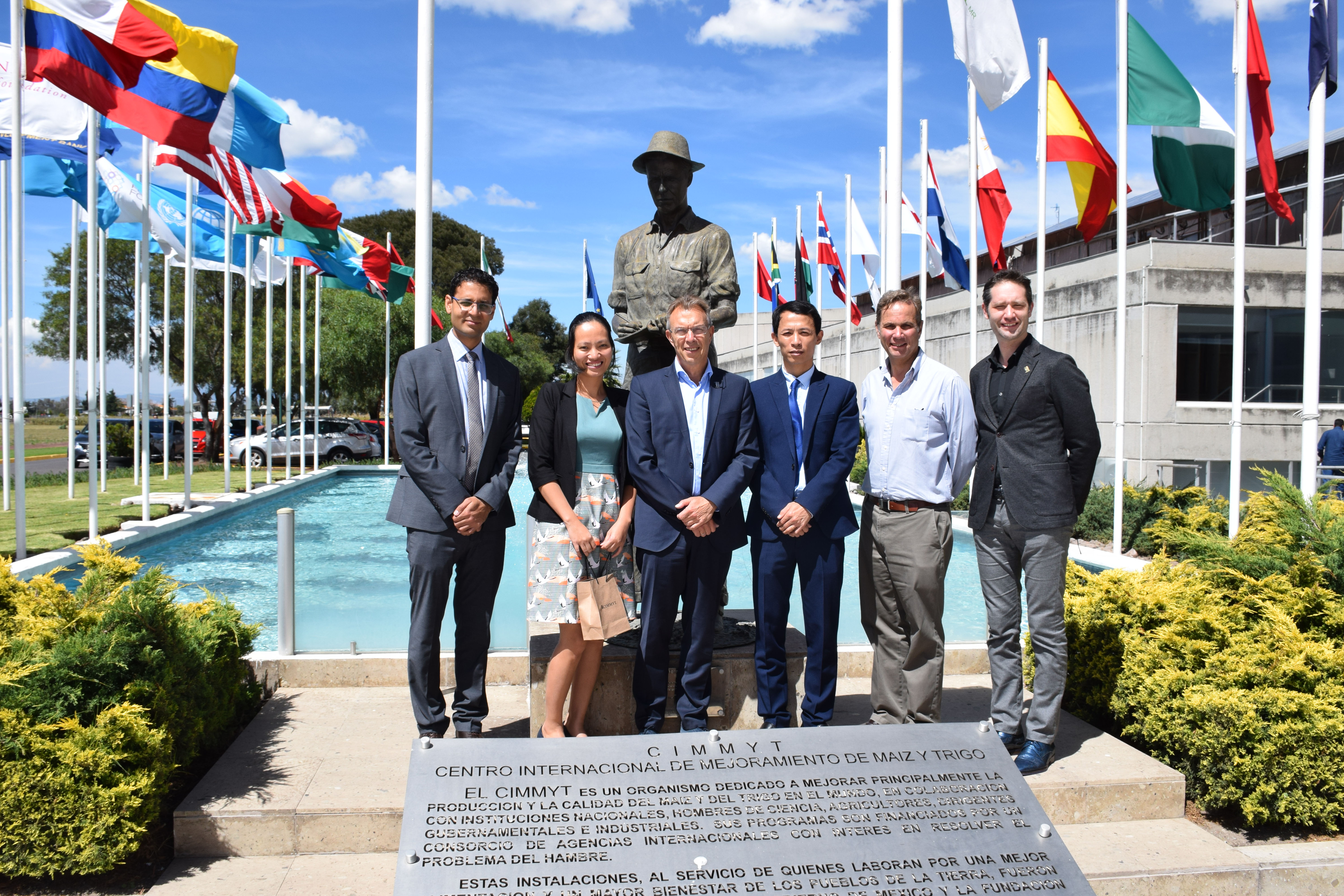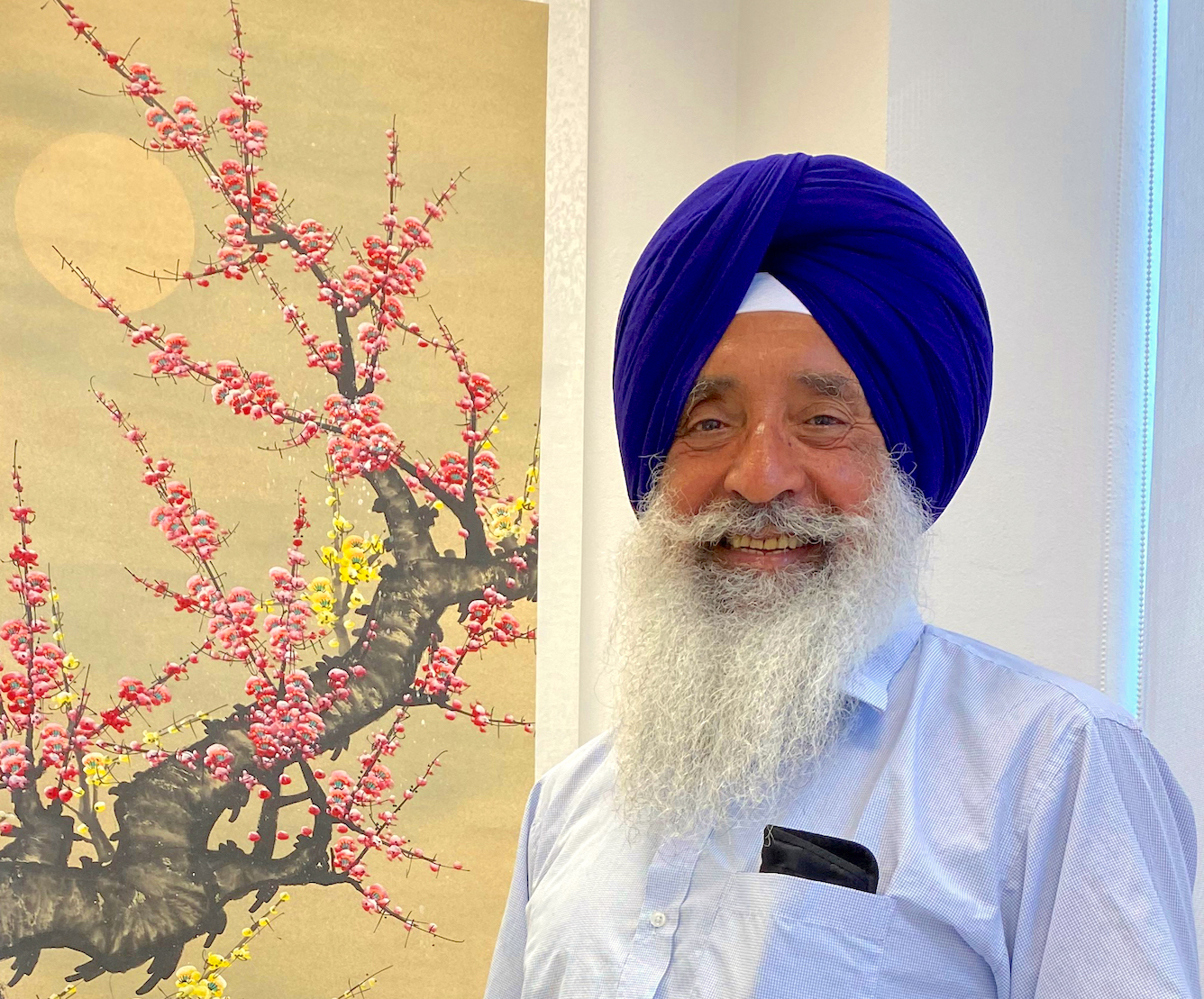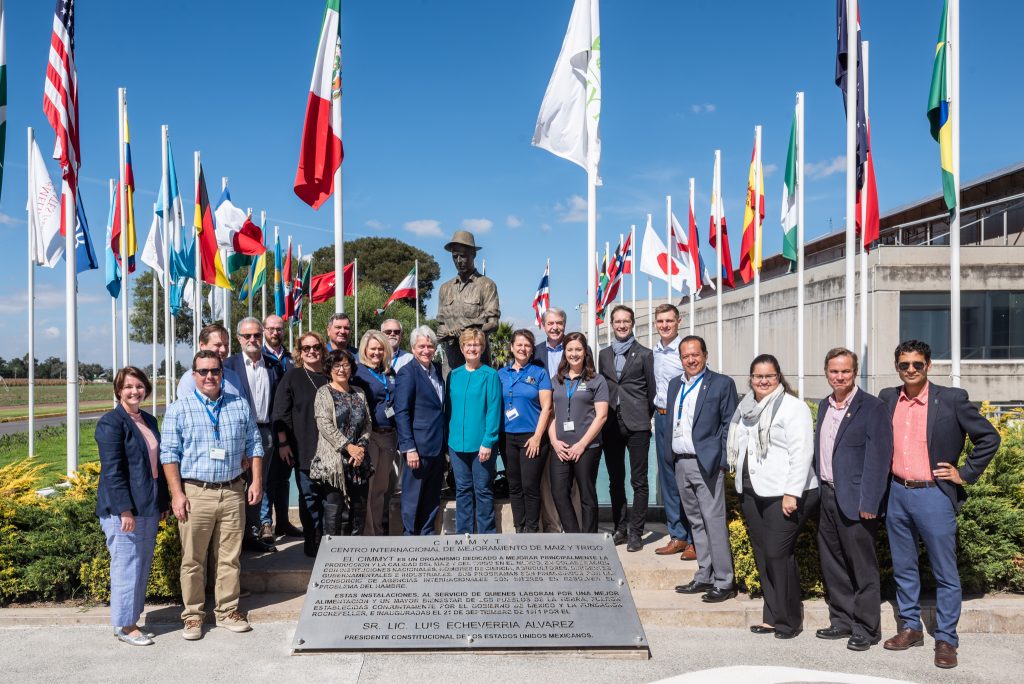
The existence of the International Maize and Wheat Improvement Center (CIMMYT) marks one of the longest and strongest bilateral relationships between Mexico and the United States of America. Beginning with a pilot program sponsored by the Mexican government and the Rockefeller Foundation in the 1940s, it would officially become CIMMYT in 1966, with many examples of strong collaboration between both countries throughout over 50 years of history.
United States Under Secretary of Agriculture for Trade and Foreign Agricultural Affairs Ted McKinney and dozens of other U.S representatives were officially introduced to this legacy when they visited CIMMYT on November 8, 2019.
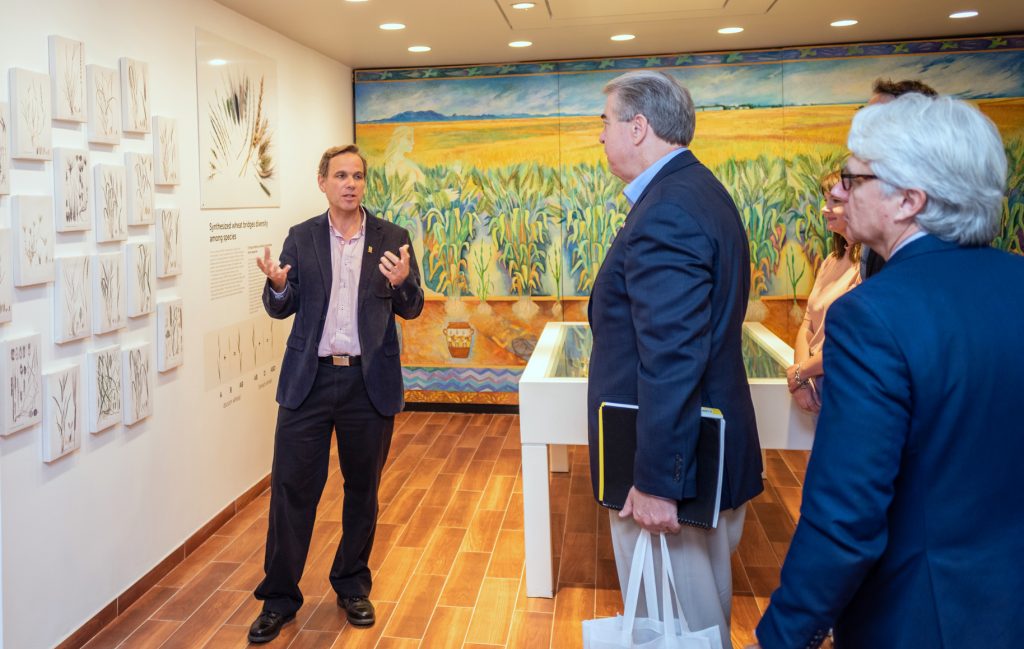
“This is a place I’ve wanted to visit for a very long time,” McKinney stated as he first laid eyes on the CIMMYT offices, “the historical CIMMYT.”
After photos and a quick tour of the museum, McKinney talked to CIMMYT Director General Martin Kropff over Skype. They bonded over their respect for Norman Borlaug and his legacy, especially as McKinney had known him and later his granddaughter Julie personally while the two men worked at Dow Agrosciences.
Kropff gave a presentation on CIMMYT’s impact on agriculture in the United States. McKinney was amazed at how much of CIMMYT’s wheat research benefits farmers in the United States, and expressed enthusiasm for further cooperation. “We’re ready, willing and able to help in any way,” he stated.
The director of the Integrated Development program and regional representative for the Americas, Bram Govaerts, presented on CIMMYT’s work with the United States. Mark Rhoda-Reis, Bureau Director of the Wisconsin Department of Agriculture, was pleased to learn that CIMMYT has been working with the University of Wisconsin-Madison on drought-tolerant maize.
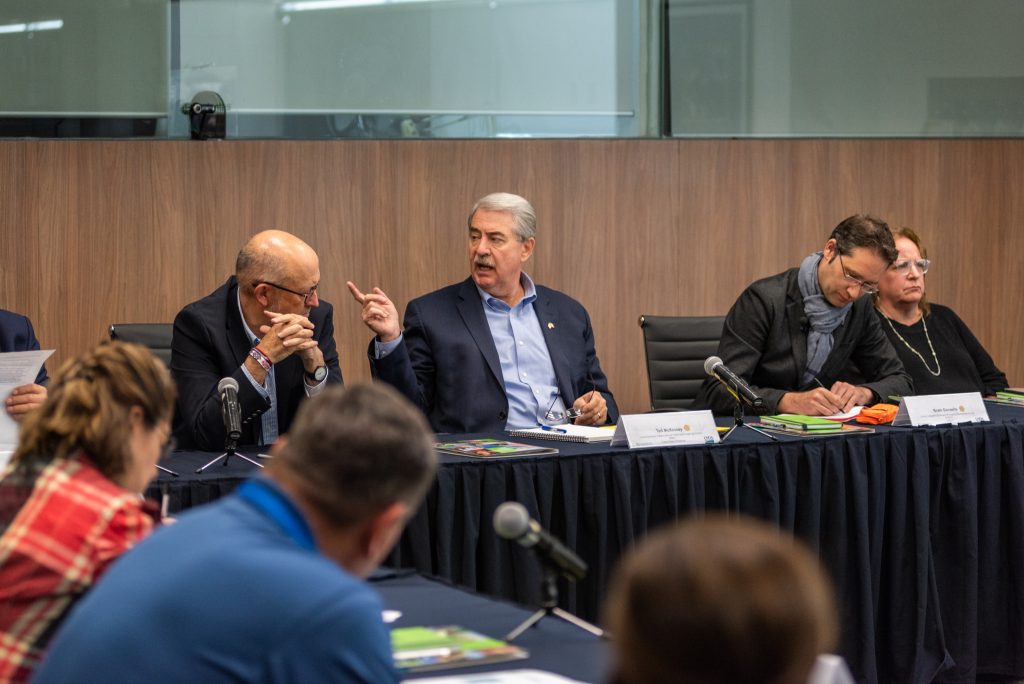
The group then split off into two groups for tours of the wheat fields and the CIMMYT germplasm bank. The delegation participated in a series of roundtable discussions on various topics such as climate change, sustainable agri-food systems, and the delegates’ objectives and needs related to agriculture in their respective states. A frequent topic was the dilemma of a public with a growing fear of technology, though technology is indispensable in the growth of the science of agriculture. “Research and education is the future of agriculture,” said one of the representatives.
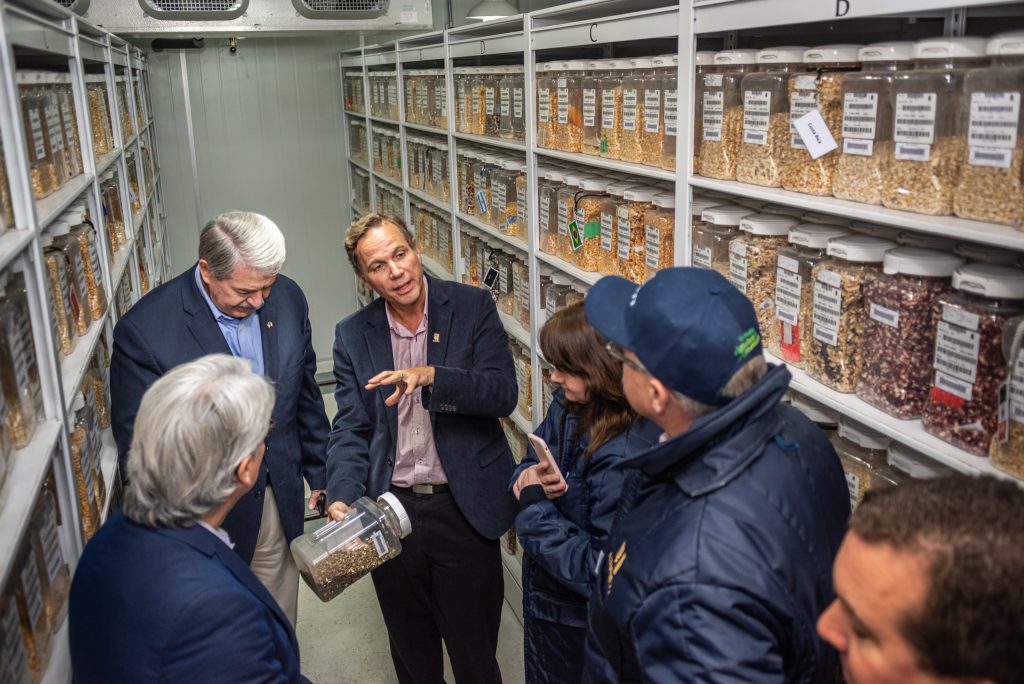
At the closing of their visit, the delegation was eager to spread their newfound knowledge about CIMMYT’s work and legacy. “I’m just so impressed with the work done here… the representation of all the countries in this facility is outstanding!,” said Chris Chin, Director of the Missouri Department of Agriculture.
“I was blown away. [CIMMYT] is so valuable to every country in the world,” stated Ignacio Marquez, a representative from the Washington State Department of Agriculture.
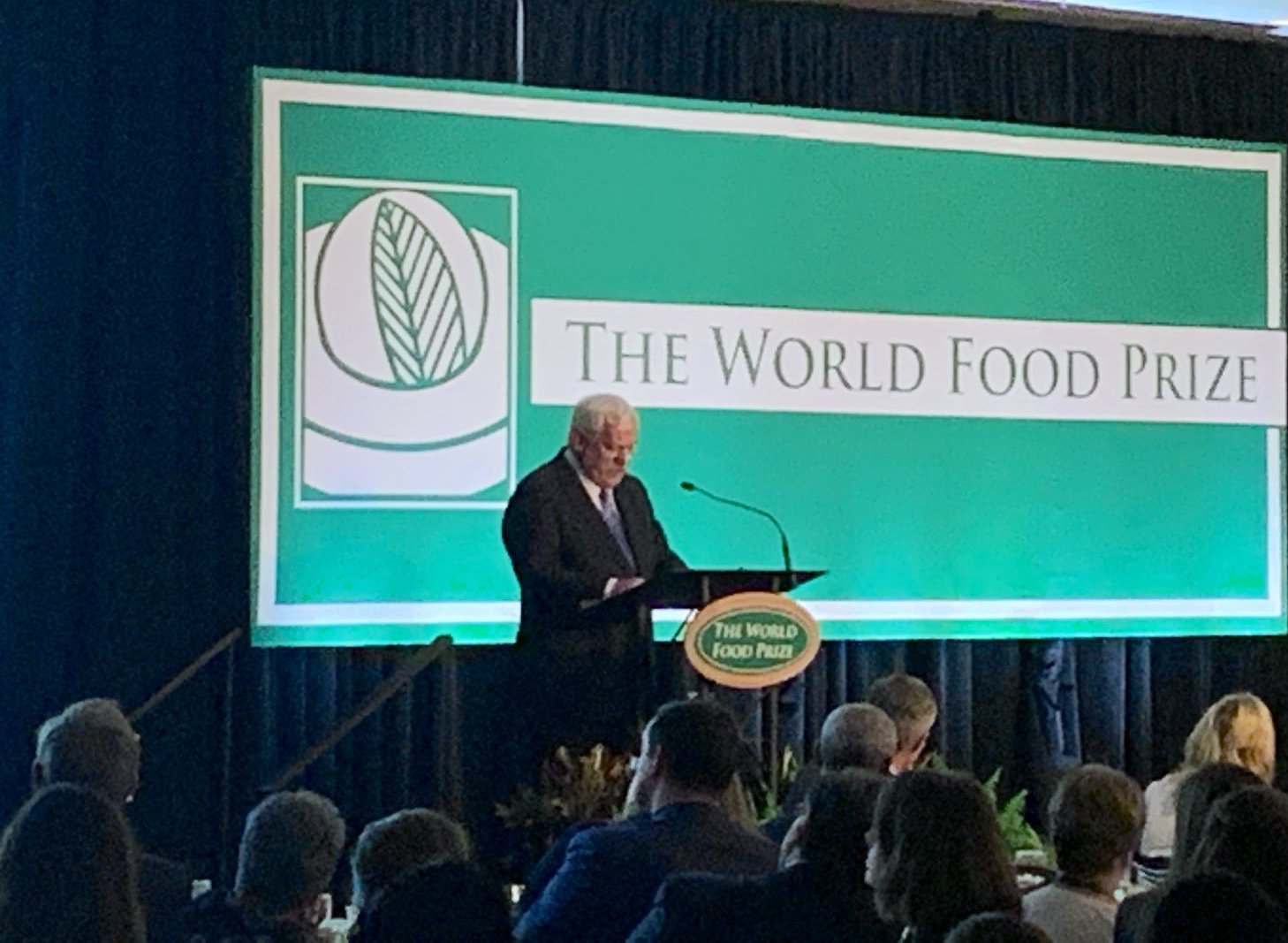
 Climate adaptation and mitigation
Climate adaptation and mitigation 